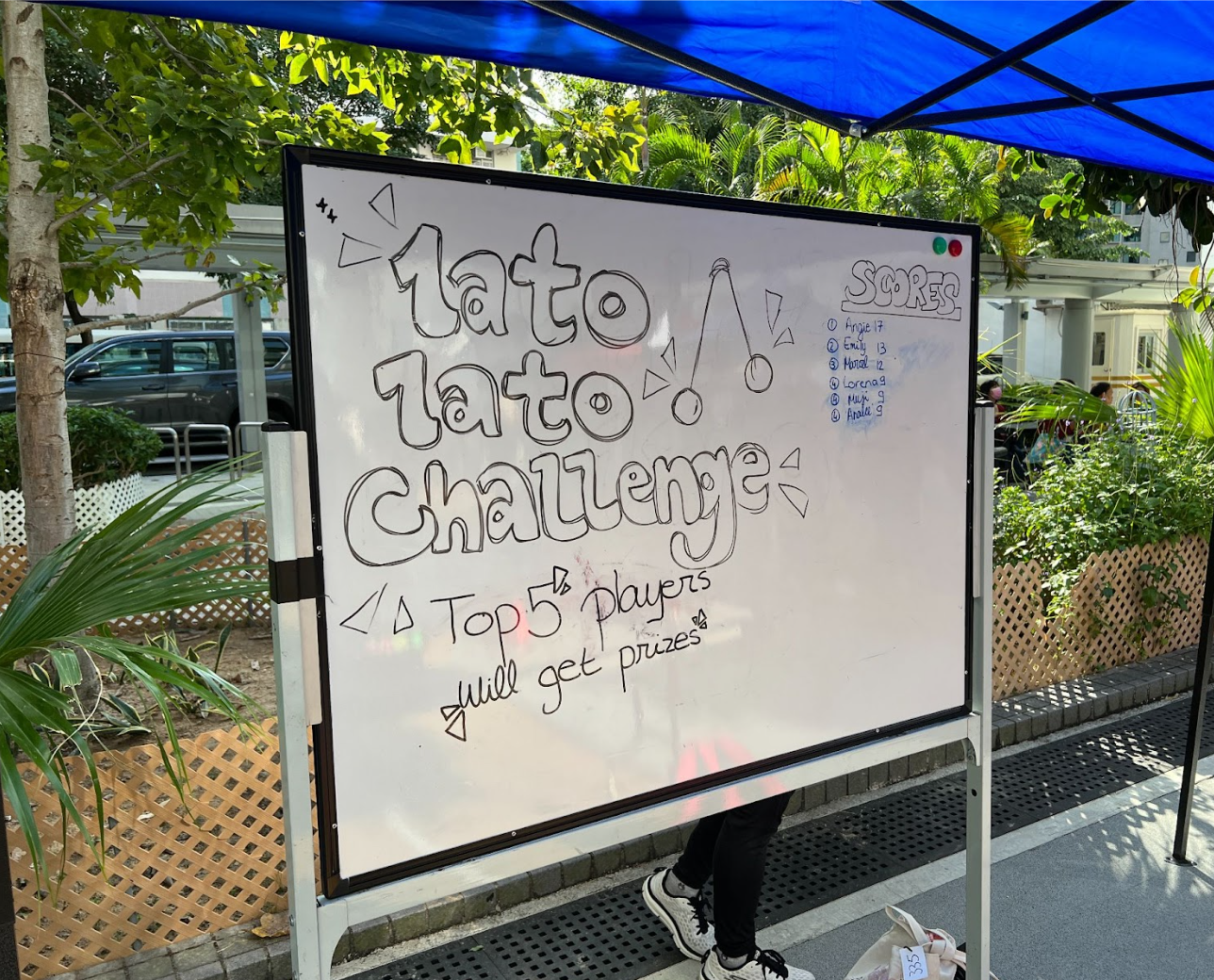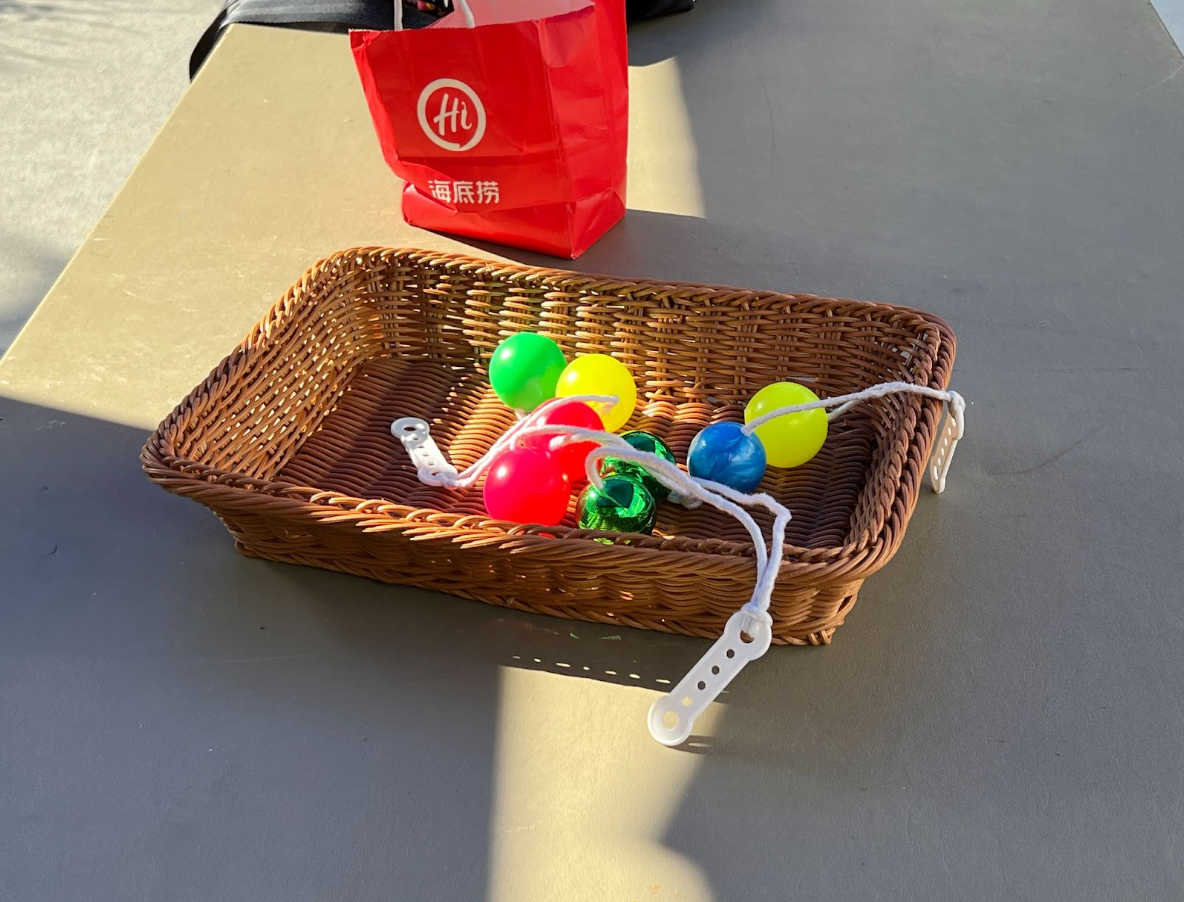‘Jie Jie Day’ at RCHK: Embracing Diversity and Pioneering Inclusivity
By Byon Loke
On December 8th, 2023, the basketball court filled up with hardworking and dedicated domestic helpers as RCHK hosted its annual “Jie Jie Day” — a day of appreciation for the valued Jie Jie community. The event’s atmosphere came to life with a vibrant buzz, setting a new standard for interaction and inclusivity. Jie Jies revelled in nostalgia and cultural connection as part of the Jie Jie Day’s programming.
“Jie Jie” is the anglicised form of a Cantonese phrase meaning “young lady” or “sister”. The word, more commonly pronounced “jeh jeh”, is used instead of “maid” or “au pair” because they are more than just a housemaid – they are an integral part of many families in Hong Kong, from dropping off and picking up kids from school to cooking three meals a day for the employer’s family.
The student-led event expressed immense gratitude towards domestic helpers, mainly from the RCHK community, through an afternoon of entertainment. Organisers received 25,000 HKD in donations from RAPT, a volunteering body composed of parents. The afternoon’s activities were jam-packed, including raffle prizes, performances, dances, lato-lato, and a photo booth. Participants could enter the raffle and win fun prizes, such as speakers. The activities immersed everyone in cherished traditions and shared memories.
On that day, I volunteered as a registrar. As the participants streamed through the school enthusiastically when the event started, I warmly welcomed them and noted their names as they entered. After I finished registering the participant’s names, I had the opportunity to interview some of the attendees.
The first participants of Jie Jie Day eagerly entering the school gates.
The first participants of Jie Jie Day eagerly entering the school gates.
I first interviewed the participants sitting on the sidelines.
“It’s very nice. [The organizers] gave me free food, and we enjoyed the games. The dancing is very hard, so we sit here instead,” a Jie Jie noted as she talked to her friends at the lunch table.
I then went to the lato-lato stall. The game’s objective is to use a rhythmic motion to create a “clacking” sound as the ends flip and strike each other. For many Jie Jies, the lato-lato evokes childhood memories and offers a delightful way of connecting with each other during the game.
“Lato lato is fun. It’s for playing,” another Jie Jie said on that day as she showed me how to play.
Another attendee was attempting to play the lato-lato — it was the employer of a Jie Jie. I consulted her about her thoughts on the event. “I think it’s really fun — it’s my Jie Jie’s first time coming to Hong Kong, so I took her to this festival. It’s my first year here too as my child is in Year 1. My Jie Jie seems to be enjoying her time here — I took her here to make new friends so she can have someone to talk to when she takes my son to school. I appreciate that she’s enjoying the event and already made two friends,” she said. “It’s my first time playing this lato-lato game — it’s an interesting gateway into the rich culture of the Philippines.
Ms Jamison Jennielyn, a Jie Jie participant, shared some of her thoughts with me. “For me, it’s enjoyable because this is my first time. I am very excited for the raffle, and I believe in my chances of winning — I wish I could win.”
When the first raffle winner was announced, the winner ran excitedly to the stage to collect her prize.
“I won a wireless speaker! I’m so happy about this, and I’m extremely thankful.” Ms Ronalyn Dalere exclaimed as she took home her raffle prize.
Then, another number was announced. The winner, Ms Nikkei Mirando. She ran as fast as she could to claim her winnings. “It’s really amazing. I’m so thankful to RCHK for making something so special; we are really grateful because RCHK understands the importance of having a Jie Jie for students. We enjoy everything they give us — I’ve been attending for three years, and each year has given us so much joy. It really gives us so much importance as Jie Jies,” Nikkei remarked.
When I approached a RAPT member asking how the event could be improved, they and another participant could comment.
“I think this Jie Jie day is very good. But I think the primary students can help, more food for the Jie Jies, and more activities for Jie Jies to play. Last year, there were many activities, but there weren’t nearly as many this year. I think the organisers should also inform Jie Jies of the event schedule and reach out more directly if they won the prizes, as some hesitated and weren’t sure,” said the RAPT member.
“It’s fun, especially the dance,” Ms Aquilar Jimi-Jiozalyn, a Jie Jie, commented. “ I did not dance, but I appreciate that they offered a Zumba dance as Filipinos love to dance. They also like the photo booth and the lato lato, which many tried but thought was too hard. The photo booth is a nice experience, but as the line was quite long, I didn’t take the photo. This is my first time. Other schools don’t have this. Filipinos like games and dance.” She also suggested more games, including musical chairs and the “Bring Me” game, which encourages participants to find a random object, such as a sock, and bring it back.





